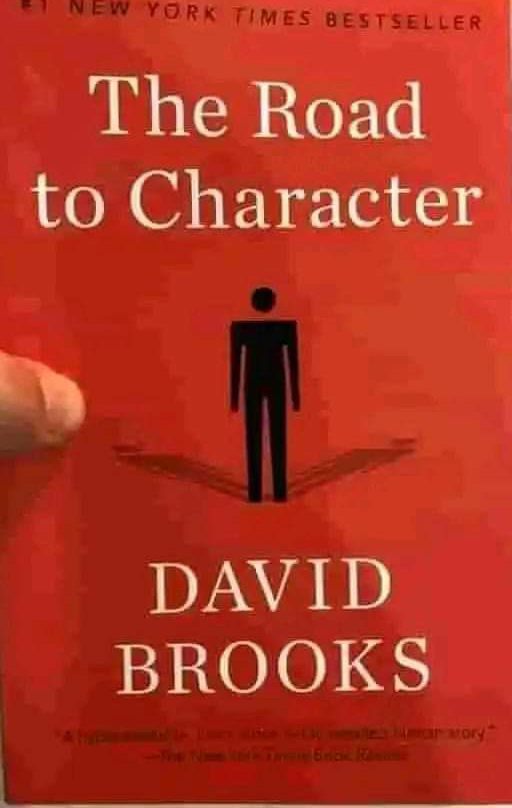THE ROAD TO CHARACTER BY DAVID BROOKS HAS SOME LESSIONS TO TEACH
✍️ Character is more important than success. Success is fleeting, but character is enduring. A person with good character will be successful in the long run, even if they don't achieve all of their immediate goals.
✍️ Character is developed through struggle. It is easy to be virtuous when everything is going well, but the true test of character comes when faced with adversity. We can develop our character by overcoming challenges and setbacks.
✍️ Character is formed by our relationships. We are shaped by the people we spend time with. If we want to develop good character, we need to surround ourselves with people who are virtuous.
✍️ Humility is the foundation of character. A humble person is aware of their own weaknesses and limitations. They are also open to learning from others.
✍️ Courage is essential for character. Courage is the willingness to do what is right, even when it is difficult. It is also the willingness to stand up for what you believe in, even when you are in the minority.
✍️ Self-control is necessary for character. Self-control is the ability to manage our emotions and desires. It is also the ability to resist temptation and make wise]choices.
✍️ Justice is a key component of character. Justice is the desire to treat others fairly and equitably. It is also the willingness to stand up for what is right, even when it is inconvenient.
✍️ Generosity is another important aspect of character. Generosity is the willingness to give of our time, money, and talents to help others. It is also the willingness to forgive those who have wronged us.
✍️ Gratitude is a virtue that enhances character. Gratitude is the appreciation for the good things in our lives. It is also the willingness to be thankful for the people who have helped us along the way.
✍️ Humility is the mother of all virtues. Humility is the recognition that we are all flawed human beings. It is also the willingness to learn from our mistakes and to grow as individuals.
Brooks argues that character is essential for living a good and meaningful life. He also argues that character can be developed through struggle, relationships, and the cultivation of virtues such as humility, courage, self-control, justice, generosity, gratitude, and forgiveness.
Some additional tips for developing good character
▶️ Be mindful of your thoughts and actions. Pay attention to your thoughts, feelings, and behaviors. Notice when you are acting in accordance with your values and when you are not.
▶️ Set goals for yourself. What kind of person do you want to be? What values do you want to live by? Set goals for yourself and make a plan for how to achieve them.
▶️ Find role models. Look for people who embody the qualities that you admire. Learn from them and model your own behavior after theirs.
▶️ Be patient. It takes time and effort to develop good character. Don't get discouraged if you don't see results immediately. Just keep working at it and you will eventually reach your goals.
Developing good character is a lifelong journey. But it is a journey that is well worth taking. By following the lessons above, you can become a better person and live a more fulfilling life.

Comments
Post a Comment